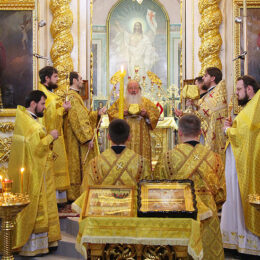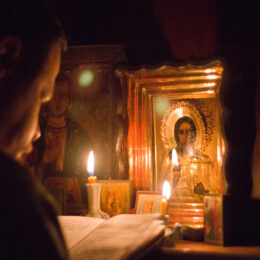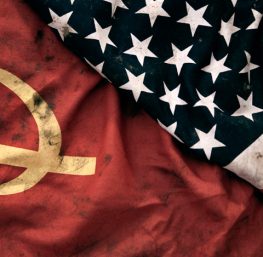Catholics and Orthodox Alike Dispute Findings
MOSCOW, NOV. 10, 2005 (Zenit.org).- A Russian Catholic representative publicly expressed his disagreement with a U.S. State Department report that contends there is a lack of respect for religious freedom in Russia.
Father Igor Kovalevsky, secretary-general of the Conference of Catholic Bishops of Russia, said that “Russian power makes no discrimination whatsoever against the freedom of religious minorities.”
According to the report on religious freedom around the world, presented in Washington, D.C., on Tuesday by U.S. Secretary of State Condoleezza Rice, Russia is one of the countries that practices a preconceived policy in its relationship with representatives of minority religions.
In the opinion of U.S. experts, the Russian authorities and the Russian Orthodox Church, as well as the Federal Security Service (formerly the KGB), limit the freedom of religious minorities.
In an interview on radio station “Echo of Moscow,” Father Kovalevsky said that bishops do not feel that organs of Russian power have a policy against the Catholic Church.
He acknowledged that the Catholic Church has a difficult relationship with the Russian Orthodox Church, but that the difficulties are very specific and internal.
“To draw consoling conclusions, in the progress of relations with the Russian Orthodox Church, is still early,” he said. However, the Russian Orthodox Church does not have a policy to expel the Catholic Church from Russian territory, he added.
Privileged place
The U.S. State Department’s report points out that the Russian Orthodox Church has, undoubtedly, a privileged position among the country’s religions and denominations.
The document mentions that the Moscow Patriarchate is in close contact with organs of the government, allowing the Orthodox to move into the sphere of education and the army.
It notes, for example, that at President Vladimir Putin’s last annual message to the Federal Assembly, the Orthodox Patriarch, Alexy II, occupied a place of honor in the first row next to the prime minister. Other religious leaders sat behind him.
For their part, Russian Orthodox Church representatives said there should be no religious discrimination, though they consider it normal for one religion to have preponderance over another.
Archpriest Vsevolod Chaplin, an official of the Department of External Religious Relations of the Patriarchate of Moscow, said: “It is surprising that the U.S. experts look for deviations in the U.S. model in church-state relations, which for us are not our own.”
“At the same time,” he added, “they don’t point out the important differences that exist, with respect to their model, in England, Spain and in other of their partner countries.”
Minorities
Still, the U.S. report on religious freedom states that Russian power, both at the federal as well as the regional level, often violates the right of religious minorities.
This breaks the constitutional order which guarantees equality for all religions and the separation of church and state, the report contends.
In addition, it mentions that the Federal Security Service regards some religious leaders of minorities as dangerous for the country’s security and criticizes the fact that entry visas are denied to Catholic priests.
In the category that classifies Russia, the U.S. State Department also includes Azerbaijan, Belarus, Israel, Turkey, Brunei, Indonesia, Malaysia and Pakistan.
Among the countries with the worst conditions of religious freedom, the annual report mentions China, Cuba, North Korea and Myanmar (Burma).



